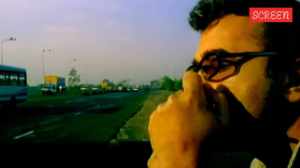MPSC scam: 40 lakh seized, 4 held
Fixed deposit receipts worth Rs 24 lakh, cash seizure of Rs 14-15 lakh, foreign currency in US dollars and Euros worth Rs 1 lakh topped by a...

Fixed deposit receipts worth Rs 24 lakh, cash seizure of Rs 14-15 lakh, foreign currency in US dollars and Euros worth Rs 1 lakh topped by about 150 answer sheets of an exam and numbering instruments.
In these lie the makings of the most organised scam to cloud the Maharashtra Public Service Commission yet. All these were recovered by the Anti-Corruption Bureau (ACB) in raids on several premises of employees and former MPSC chairman Shashikant Karnik over the weekend.
Acting chairman P.D. Wani is expecting a preliminary report from the ACB in the next two days which will help assess how much deeper the probe into malpractices in the MPSC exams should go.
Large-scale irregularities are said to have been detected in the 1999 Common Entrance Exam conducted for the posts of sales tax inspector and police sub-inspectors when Karnik, who is currently a member of the Union Public Services Commission, was at the helm of affairs.
Sources said the MPSC made a complaint to the ACB only after senior officials were convinced that there was reason to involve police. ‘‘There was reason to believe that malpractices had taken place. That’s why we approached the ACB,’’ said an official.
Following the raids, four people were arrested and have been remanded to police custody till July 10.
The four include former controller of exams S. Sarode, Farukh Kagde and two from the state secretariat who served in MPSC. Offences under the Anti-Corruption Act 1988 have been registered for criminal misconduct, breach of trust and forgery against them.
However, more than these arrests, it’s the sealing of Karnik’s house in Mumbai that has caused concern in the corridors of power, also because he is now a member of the UPSC.
Karnik’s term as the Mumbai University V-C was not entirely free of scandal. Questions have been raised about the impropriety of the MPSC filing a complaint directly with the ACB but a senior bureaucrat rubbished this saying the MPSC was an autonomous body with its independence ensured by a statute which gave it the right to approach the ACB directly if its senior officers so wished.
Photos


- 01
- 02
- 03
- 04
- 05





























